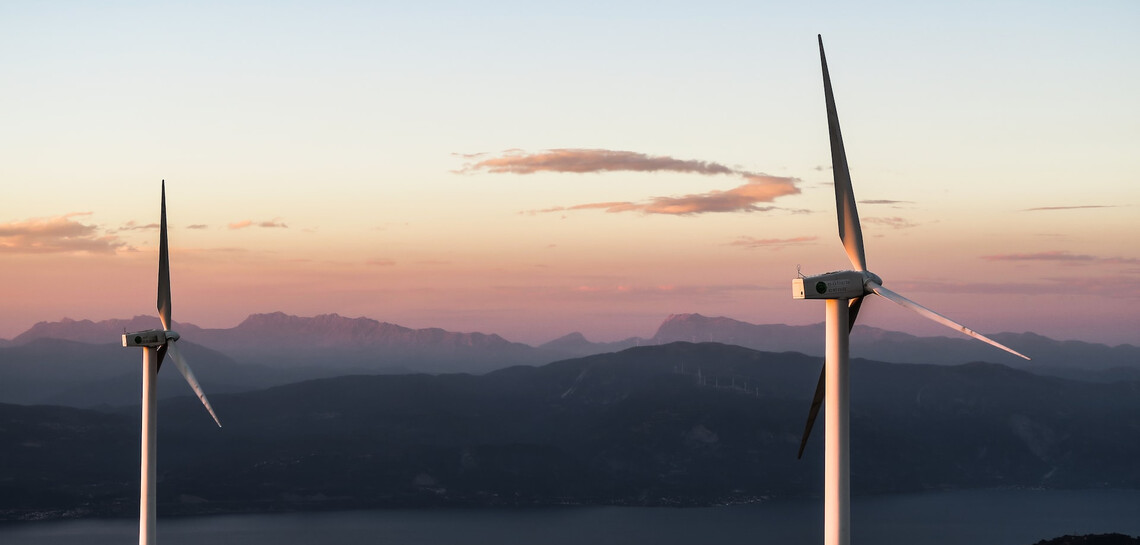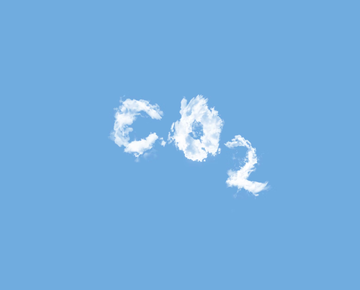As a result of the Russian war in Ukraine, energy prices have skyrocketed to unimaginable heights. With extensive energy cost relief packages, national governments are trying to mitigate the dramatic effects on their economies and private households. For companies, there is a need for action on various fronts. These measures apply in Germany, Poland, and the UK, for example.
Due to the energy crisis, the European Union as well as national governments are implementing various measures to relieve the strain on the economy and help EU industries and citizens to deal with the rising energy prices. Taxes are one of the most effective short-term solutions to the soaring energy prices. In the recent months, the EU has introduced several temporary measures such as a ‘solidarity contribution’ levied on ‘surplus taxable profits’ of companies in the oil, gas, coal, and refinery sectors, as well as a revenue cap on companies generating low-cost electricity from wind, solar, or nuclear sources. In the sections below, we delve deeper into some member states’ national implementation of the EU measures and other national tax mechanisms.
Germany
Electricity and gas price caps
The price caps for electricity, gas, and heat are the core elements of the German government’s 200-billion-Euro protective shield to mitigate the high energy prices for companies and citizens. Micro, small, and medium-sized enterprises (SMEs) are subject to the same rules as private households. The regulations are slightly different for energy-intensive industry and hospitals.
The gas price cap is intended to limit the gas price for SMEs to 12 cents per kWh if they consume less than 1.5 million kWh per year. The lower price then applies to 80% of the annual consumption forecasted in September. The market price must be paid for consumption more than this. The gas price brake for private households and SMEs is to start from 1st March 2023 with retroactive relief for January and February 2023. For the approximately 25,000 energy-intensive industrial companies with annual consumption of more than 1.5 million kWh, the net energy price per kWh will be capped at 7 cents. Here, the rebate applies to 70% of their gas consumption in 2021. For any consumption above this, the normal market price must be paid. The industrial gas price cap is to apply from 1st January 2023.
The planned electricity price cap will also limit the electricity price for SMEs to 40 cents per kilowatt hour if they consume less than 30,000 kWh a year. The lower price will then apply to 80% of the previous year’s consumption. The market price must be paid for consumption above this. For energy-intensive businesses and industrial customers who consume more than 30,000 kWh a year, the electricity price is capped at 13 cents of the net labour price. This applies to 70% of their previous consumption. For consumption more than this, they must pay the market price. The electricity price brake applies to all electricity consumers since January 2023 and will be paid out retroactively from March 2023. It is limited until 30th April 2024.
Windfall tax and revenue cap
To reduce energy prices, the German federal government planned to partially eliminate ‘unexpected profits’ of electricity producers by introducing revenue and price caps for inframarginal electricity producers.
The German relief package describes the introduction of revenue and price caps as a ‘quasi-reversal’ of the EEG surcharge (the German Renewable Energy Sources Act). The existing accounts for this surcharge, which was permanently abolished from July 2022, could be used for this system. The implementation of the revenue cap and the ‘electricity price brake’ is expected to benefit small and medium-sized enterprises, but also large enterprises, as they receive financial support (state aid) concerning the price paid for a so-called basic consumption.
The elimination of ‘extraordinary profits’ will also allow for a reduction of costs through redistribution. Therefore, the increase of the electricity grid fees will be averted from 1st January 2023.
Energy taxation measures
Regarding electricity taxation, energy-intensive enterprises will be granted support against price increases until 31st December 2023, with the help of the so-called ‘peak compensation for electricity’ (§ 10 StromStG) and energy taxes (§ 55 EnergieStG). However, this assistance is dependent on the company reducing its energy consumption. By the end of 31st December 2022, they will also be able to continue to use existing support programs against rising energy costs. Under the 3rd relief package, no further increase of CO2 prices in the context of the national emissions trading scheme is planned until 1st January 2024.
VAT measures
An additional measure is that gas suppliers will charge a reduced VAT rate of 7% instead of 19% until the end of March 2024. The aim is to target and support companies that are fundamentally viable and capable of surviving in the long term even in the current market scenario.
Key recommendations
In addition to the familiar tax benefits for energy and electricity tax, small and medium-sized enterprises can reduce their energy costs through a variety of new subsidy programs. In the spotlight are the electricity and gas price caps. Companies should pay attention to the specifics of the various application procedures and the relevant deadlines and required evidence.
Poland
Windfall tax and revenue cap: Electricity
In November 2022, the Act of 27th October 2022 came into force, on emergency measures to reduce electricity prices and support for certain recipients in 2023. It introduced a tax on excess profits. The new tax shall be paid by electricity producers and electricity providers (further called: ‘eligible entities’) on the account of a dedicated fund. The obligations are to be executed in period from 1st December 2022 to 31st December 2023. This levy will be calculated depending on the electricity generation technology.
A maximum price per megawatt hour is 693 Zloty net for households or 785 Zloty net for other entities. The indicated price cap is applied for listed consumers, including SMEs. To be charged the maximum price, the consumers (except for households) were obliged to submit a statement confirming that the requirements to apply the price cap are met until 30th November 2022 or 31st January 2023 (for housing communities and cooperatives)
Gas
In December 2022, the Act of 15th December 2022, concerning the maximum price of gaseous fuels, came into force, introducing another windfall profits levy for 2023. It is applicable in the period from 1st January 2023 to 31st December 2023. The ‘Price Difference Payout Fund’ will be paid by natural gas providers. The maximum price of gaseous fuels doesn’t apply to SMEs.
Energy taxation measures
Excise duties on electricity, some engine fuels, and light heating oil until the end of 2022 have been reduced to the EU minimum. The Polish law (Act of 27th October 2022) also provides an incentive for electricity savings by offering a 10% discount in 2024 for eligible customers, who will keep their electricity consumption in 2023 at a level not exceeding 90% of the average annual electricity consumption in the period 2018 – 2022. The amount of the discount is equivalent to 10% of the total amount of electricity sales settlement incurred by the eligible customer in 2023.
VAT measures
Until the end of 2022, reduced VAT rates on electricity (reduced from 23% to 5% VAT rate) or natural gas (reduced from 23% to 0% VAT rate) were applied. The measures outlined above should allow energy prices to remain in 2023 on the same level as in 2022.
Key recommendations
The Polish government has established a programme to assist among others SMEs in the period 2022 – 2024. The various measures that fall under that programme have been explained in the preceding sections. Businesses should first determine whether they are on the list of entities eligible for assistance and whether they meet the requirements listed. Businesses must submit relevant statements and declarations on time for certain relief mechanisms, such as an electricity price cap.
UK
Windfall tax and revenue cap
The Energy Profits Levy (EPL) was introduced in the UK on 26th May 2022 and will remain in place until 31st March 2028. From 1st January 2023, the EPL is charged on the profits of oil and gas producers at a rate of 35%, in addition to the permanent 40% tax rate, resulting in a combined headline tax rate of 75%.
From 1st January 2023 the investment allowance is re-duced from 80% to 29% which, due to the increase in the rate of the EPL, broadly maintains the existing cash valueof the allowance. To recognise that the oil and gas sector is investing in decarbonisation, expenditure on qualifying decarbonisation will continue to qualify for the investment allowance at 80%, resulting in tax relief of 109.25 Pound for every 100 Pound of qualifying expenditure incurred.
A new Energy Generator Levy (EGL) consisting of a temporary 45% tax levied on ‘extraordinary returns’ from low carbon UK electricity generation is being introduced from 1st January 2023 to 31st March 2028. The levy applies to companies or groups of companies generating more than 50 GWh of electricity per annum.
Energy taxation measures
The Energy Bill Relief Scheme (EBRS) is currently in place from 1st October 2022 to 31st March 2023 providing a temporary discount on gas and electricity unit prices for businesses, charities and public sector organisations. The reduction to bills for eligible non-domestic customers is applied by suppliers with the government compen-sating suppliers for the reduction in wholesale gas and electricity unit prices that they are passing onto non-domestic customers. The level of support for each organisation will vary depending upon the type and date of their energy supply contracts.
The Energy Bills Discount Scheme (EBDS) announced on 9th January 2023 will replace the EBRS. The EBDS is available to businesses on a non-domestic contract, providing a discount to energy bills for a twelve month period from April 2023 to March 2024. The relative discount available is significantly reduced from those available under the EBRS.
A higher level of support is available to specific energy intensive businesses known as Energy and Trade Intensive Industries (ETIIs). The production of cosmetics is not included on this list. As with the EBRS, the UK government will compensate suppliers for the reduction in unit prices being passed on to non-domestic customers.
The Climate Change Levy (CCL) is a charge on business customers in the industrial, commercial, agricultural, and public services sectors on the gas, electricity and solid fuel usage. Its aims to encourage businesses to be more energy efficient in their operations. The CCL is charged at the main rate to all businesses or at the Carbon Price Support Rate for electricity power generators or operators of combined heat and power stations.
Through entering into a Climate Change Agreement (CCA), businesses can make significant reductions to the amount of CCL charged by making improvements to the business’ energy efficiency and average energy consumption.
VAT measures
Supplies of fuel and power are charged at the standard rate of VAT of 20% unless eligible for the reduced rate of 5% for qualifying use (e.g., domestic use, charity non-business use and where small (de minimus) quantities of use are for a non-qualifying/business use).
Key recommendations
The unit price discounts being provided for non-domestic energy users in the UK from April 2023 to March 2024 are reduced significantly from the level of relief currently available. To address the reducing amount of relief, businesses should explore the range of grants and subsidies available to encourage businesses to invest in energy efficient and low carbon technologies to help reduce the amount of energy used.







